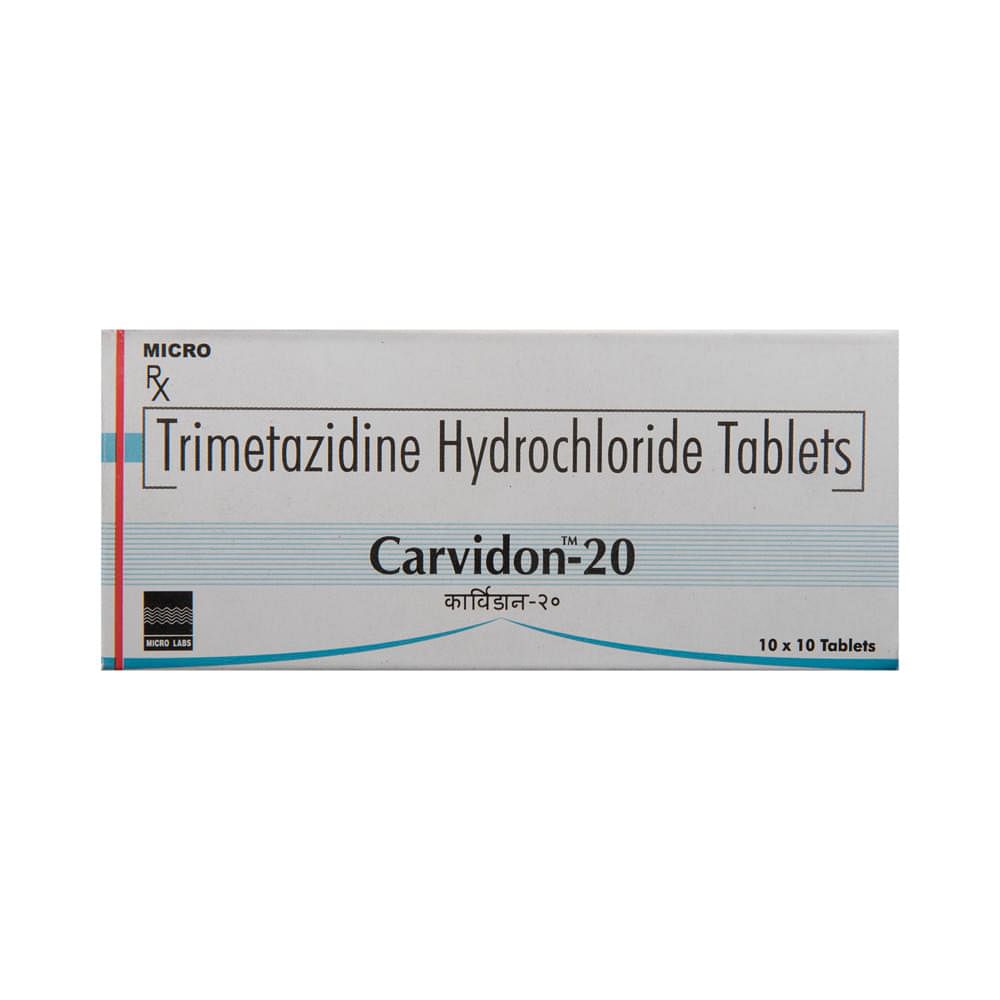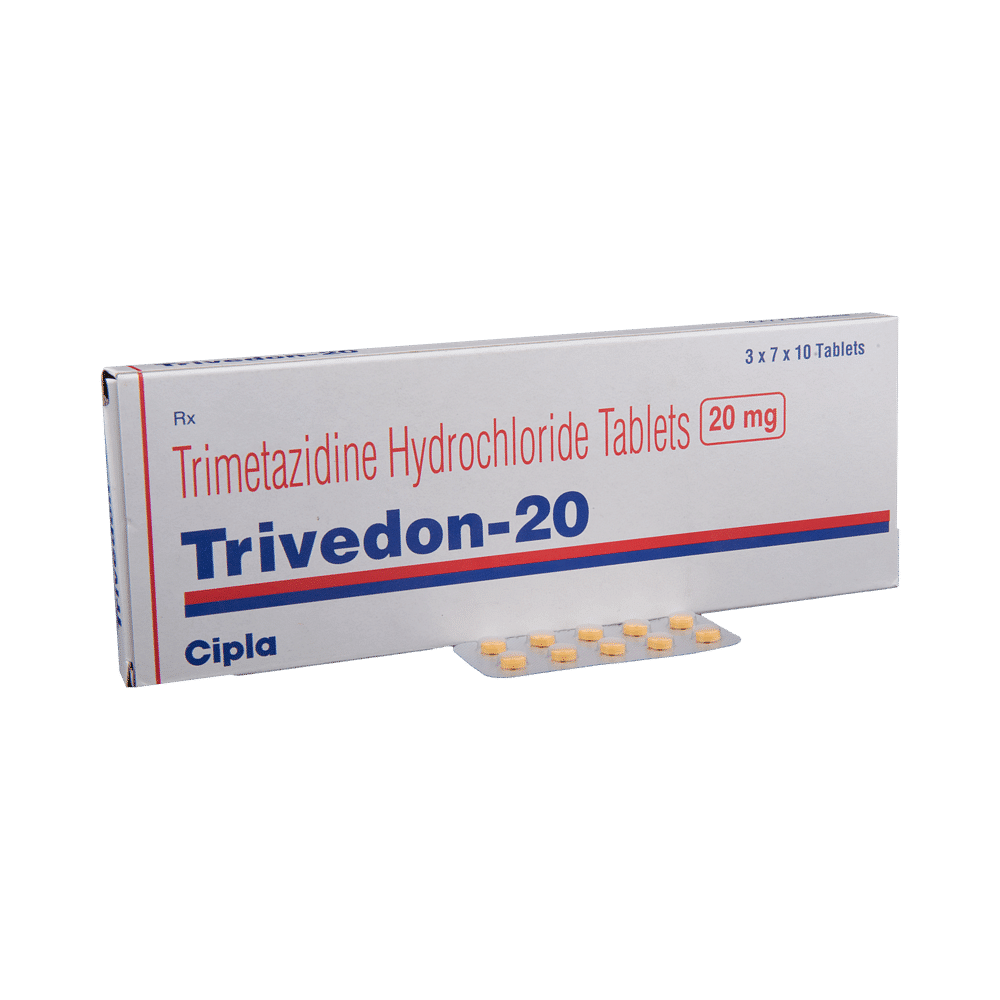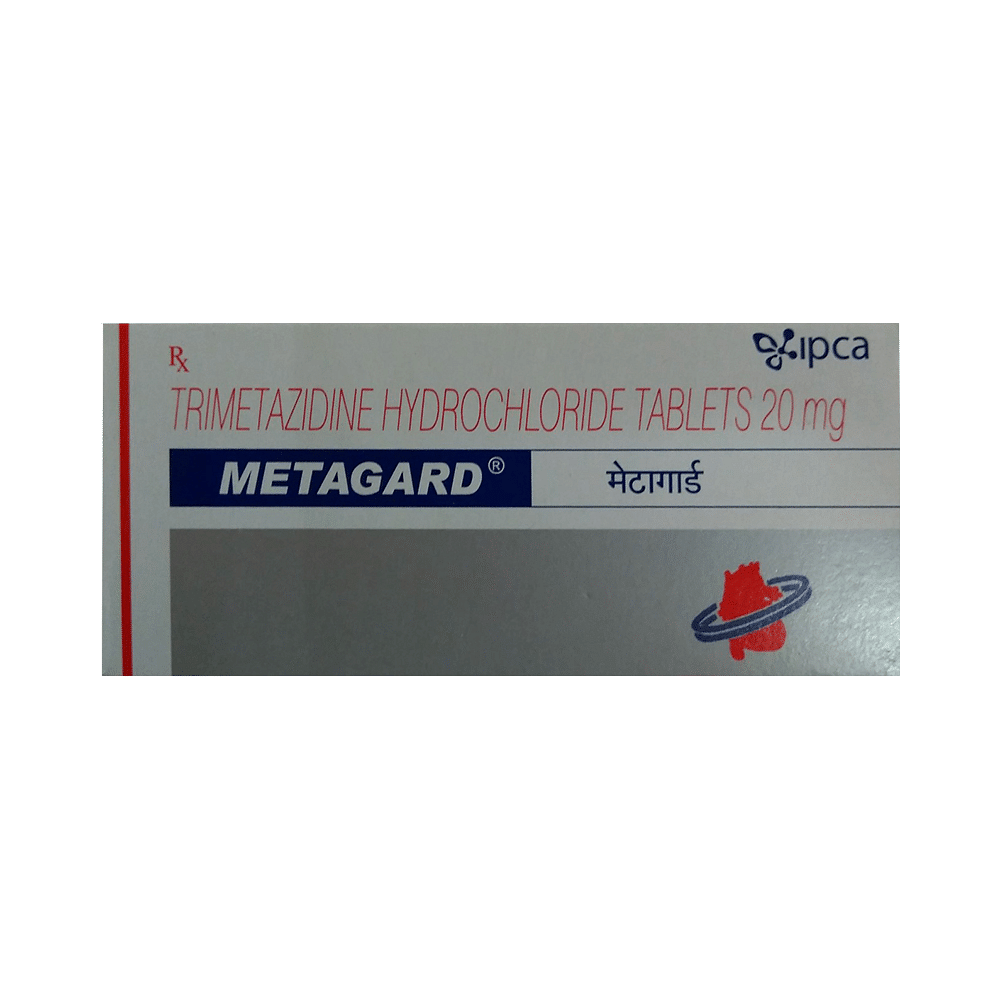
Flavetag 20mg Tablet
Manufacturer
Ikon Remedies Pvt Ltd
Salt Composition
Trimetazidine (20mg)
Key Information
Short Description
Flavetag 20mg Tablet is an anti-anginal medicine used for treating heart-related chest pain (angina).
Dosage Form
Tablet
Introduction
Flavetag 20mg Tablet should be taken regularly as advised by the doctor. You should take it with or without food and at a fixed time. Your doctor will decide how often you should take this medicine. This may change from time to time depending on how well it is working. You should take this medicine regularly to get the most benefit even if you feel fine. It helps in preventing future harm. If you stop taking it, your chest pain may come back. You can improve the health of your heart by making some lifestyle changes such as quitting smoking, cutting down on alcohol, eating well, taking regular exercise, and managing stress.
Directions for Use
Take this medicine in the dose and duration as advised by your doctor. Swallow it as a whole. Do not chew, crush or break it. Flavetag 20mg Tablet is to be taken with food.
How it works
Flavetag 20mg Tablet is an anti-anginal medication. It decreases the oxygen requirement of the heart by shifting its metabolism from fats to glucose. As a result, the heart works more efficiently.
Quick Tips
Flavetag 20mg Tablet prevents new attacks of angina but does not stop an acute attack. Does not affect heart rate or blood pressure at rest or during exercise. Improves HbA1c and blood sugar levels in diabetes patients. Does not affect heart rate or blood pressure at rest or during exercise. Improves HbA1c and blood sugar levels in diabetes patients.
Related Medicines

Flavedon 20 Tablet

Carvidon-20 Tablet

StayHappi Trimetazidine 20mg Tablet

Triguard 20mg Tablet

Trivedon 20 Tablet

Triadin 20mg Tablet

Isvedon 20mg Tablet

Tricard 20mg Tablet

Metagard Tablet

Myonerg 20mg Tablet
Frequently asked questions
Is Flavetag 20mg Tablet a beta blocker?
No, Flavetag 20mg Tablet is not a beta blocker. It belongs to a class of medications called anti-anginal agents, which are used in combination with other medicines to treat angina pectoris (chest pain caused by coronary artery disease). It works to protect heart cells from being affected by reduced oxygen supply during an episode of angina.
Who should not take Flavetag 20mg Tablet?
You should avoid taking Flavetag 20mg Tablet if you are allergic to it or have severe kidney problems. Additionally, patients with Parkinson's disease should refrain from taking this medication as it may interact with their condition.
Can Flavetag 20mg Tablet be used in elderly patients?
Flavetag 20mg Tablet should be used cautiously in patients aged over 75 years. Generally, a lower dose is prescribed to minimize potential adverse effects and continuously monitor their condition.
Does taking Flavetag 20mg Tablet increase the risk of falling frequently?
While rare, falls may occur with the use of Flavetag 20mg Tablet. This could be due to instability while walking or a sudden drop in blood pressure upon standing. The risk might be higher among elderly patients. Therefore, they should be particularly vigilant and monitored.
Does Flavetag 20mg Tablet cause drowsiness?
Yes, Flavetag 20mg Tablet can cause dizziness and sleepiness in some individuals. As such, it is recommended that you avoid driving or operating machinery until you are aware of how the medication affects your alertness.
How should Flavetag 20mg Tablet be taken?
Flavetag 20mg Tablet should be taken exactly as prescribed by your doctor. It is intended for oral use. Therefore, take the tablets with sufficient water, such as a glass of water. You can also take this medication with or without food.
What are the possible side effects of Flavetag 20mg Tablet?
Common side effects of Flavetag 20mg Tablet include dizziness, headache, abdominal pain, diarrhea, indigestion, and skin reactions such as hives, rash, and itching. It can also make you feel sick or weak. Rare side effects may involve fast or irregular heartbeat (palpitations), drop in blood pressure upon standing which could result in dizziness, lightheadedness or even fainting, falls, and flushing.


